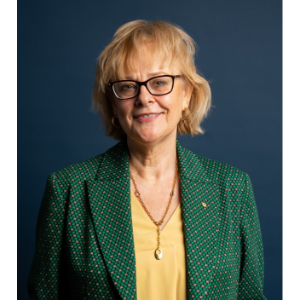Find an expert
Our panel of editors are available for interview
Dr James Mountford
Editor-in-Chief of BMJ Leader
Dr James Mountford is Director of Quality at Royal Free London NHS Foundation Trust. He worked initially as an NHS doctor, then in consulting. From 2005-2007, he was a Commonwealth Fund Health Foundation Harkness Fellow based in Massachusetts General Hospital, and at the Institute for Healthcare Improvement (IHI), both in Boston, USA. Before moving to the Royal Free, he was Director of Quality at UCL Partners, an academic health sciences partnership serving a population of 3 million in and around London. He sits on the board of AQuA, the improvement partnership based in north-west England. In March 2020 he was seconded to work as the Chief of Quality and Learning at the NHS Nightingale Hospital London, opened in response to the COVID-19 pandemic.
Professor Bryony Dean Franklin
Editor-in-Chief of BMJ Quality & Safety
Professor Bryony Dean Franklin is a hospital pharmacist by background, with 30 years’ experience of research into medication safety, medication use in practice and patient safety more generally. She is Co-Editor-in-Chief of BMJ Quality & Safety, Professor of Medication Safety at UCL School of Pharmacy, Executive Lead Pharmacist for Research at Imperial College Healthcare NHS Trust, Director of the NIHR North West London Patient Safety Research Collaboration and theme lead for the NIHR Health Protection Research Unit in Healthcare Associated Infection and Antimicrobial Resistance at Imperial College London. Professor Franklin has published widely on medication safety, the evaluation of various technologies designed to reduce errors, and the patient’s role in patient safety. Her current post combines research, quality improvement, education and training, medical publishing and hospital pharmacy practice.
Theodora Bloom
Executive Editor of the BMJ
Theodora Bloom is executive editor of The BMJ. At the BMJ, Theo’s responsibilities include publishing, business, platform and operations as well as ethical and policy matters. She is a Co-Founder of the medRxiv preprint server, a collaboration between BMJ, Cold Spring Harbor Laboratory and Yale University, and jointly coordinates open access and open research initiatives at BMJ.
Professor Caroline Finch AO
Editor-in-Chief of Injury Prevention
Professor Caroline Finch AO is the Deputy Vice-Chancellor (Research), Edith Cowan University. She is one of Australia’s leading injury epidemiologists, particularly known internationally for her public-health-focused injury prevention research. Her influential research has informed the development of injury surveillance and data systems, the implementation and evaluation of preventive measures, and the dissemination of safety advice and guidance. Her research outcomes have directly informed safety policy for Government Departments of Sport and Health, health promotion/injury prevention agencies, and sports bodies worldwide. In 2015, she was awarded the International Distinguished Career Award from the American Public Health Association’s Injury Control and Emergency Health Services Section. In 2018, she became an Officer of the Order of Australia for ‘distinguished service to sports medicine’.
Karen L Furie, MD
Editor-in-Chief of the Journal of Neurology, Neurosurgery and Psychiatry
Karen Furie, MD, MPH is Neurologist-in-Chief, Rhode Island Hospital, the Miriam Hospital and Bradley Hospital Samuel I Kennison, MD and Bertha S Kennison Professor of Clinical Neuroscience Chair of Neurology, the Warren Alpert Medical School of Brown University. Clinical and translational stroke research has been a major focus of Karen’s career, and she has enjoyed success in developing collaborative multispecialty initiatives.
Professor Ganesan Karthikeyan
Editor-in-Chief Open Heart
Professor Karthikeyan is a clinical, interventional cardiologist and a Senior International Fellow of the Population Health Research Institute at McMaster University in Canada, as well as Professor of Cardiology at AIIMS. His research is mainly focused on cardiovascular diseases affecting low and middle income countries, including valvular heart disease, particularly rheumatic heart disease (RHD), mechanical valve thrombosis, anticoagulation, and indigenous drug-eluting stents.







